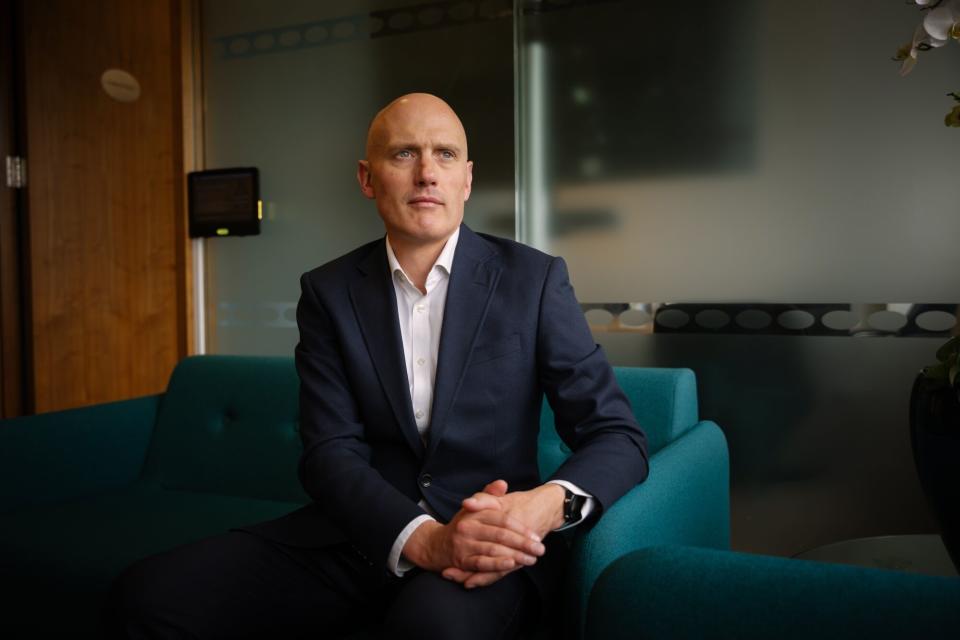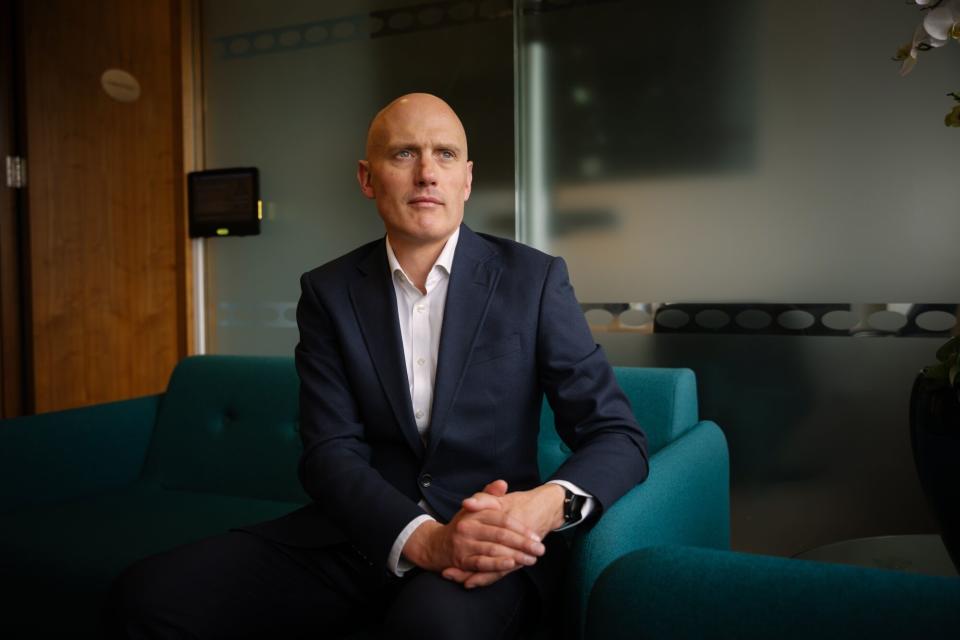City of London Executive Pay Caps Are Hurting UK, Regulator Says
(Bloomberg) -- The head of Britain’s corporate governance and accounting watchdog said UK boards should push back against powerful proxy advisers that bridle at US-style pay packets, wading into the debate about whether senior executive pay is hurting the UK’s competitiveness.
Most Read from Bloomberg
Russia Is Sending Young Africans to Die in Its War Against Ukraine
Macron Gambles on Snap French Election in Bid to Stop Le Pen
Investment Bank Moelis Probes Incident After Video of Employee Appearing to Punch Woman
New York Fed Is Losing Talent and ‘Street Cred’ Under John Williams
“There’s no law in this country that stops chief executives being paid more,” Richard Moriarty, chief executive of the Financial Reporting Council, said in an interview.
Executive pay has been pushed up the agenda in the UK, with companies shifting their listings to New York and business leaders complaining about their struggle to compete for talent against the US.
The debate has thrown a spotlight on the growing influence of proxy agencies, which recommend how shareholders vote at company meetings based on the quality of firms’ corporate governance. The agencies, including Glass Lewis and Institutional Shareholder Services, have taken an increasingly important role thanks to the growth of passive investment funds that outsource voting decisions.
The FRC is now examining the role of these agencies as part of a review into the stewardship code, which sets standards for investors, and weighing whether they should be subject to stricter oversight.
“There is definitely a question for me about whether the expectations on proxies in our stewardship code are in need of review, given the importance they now are in the economy,” said Moriarty, who joined the FRC almost a year ago from the Civil Aviation Authority.
Georgina Marshall, global head of research at ISS, said the agency takes into account each company’s circumstances — for example at the London Stock Exchange Group Plc, where it supported the firm’s plan to give CEO David Schwimmer a multimillion-pound pay rise that was more in line with US competitors.
“Our approach is not designed to dictate to companies what peer groups they should or should not use, but to provide investors with an independent assessment and with a measure of comparability,” Marshall said.
ISS consulted with clients in the past year on this issue, but did not find strong support for a fundamental shift away from benchmarking UK firms against local and European peers, she added.
Team UK
The comments from Moriarty in part reflect a growing pressure on UK regulators to act as economic boosters. In November, the government told the FRC it should promote competitiveness, as the UK seeks to encourage more companies to list shares in London. The Financial Conduct Authority has been given similar duties on competitiveness.
“Being blunt, we’re unlikely to have the fiscal levers to compete with Biden’s Inflation Reduction Act or the EU’s Green Deal initiative,” Moriarty said. “Therefore, governments will look for all levers to contribute to growth and regulation will have to take its part in it.”
Moriarty said whoever forms Britain’s next government should focus on long-awaited reforms to create a new, more powerful accounting regulator to ensure the UK remains competitive. The watchdog is awaiting new legislation to create the Audit, Reporting and Governance Authority — a shakeup that was proposed after a series of corporate failures that weren’t flagged by auditors.
“After a general election there’s always a new government, even if it’s a returning government, it has a new agenda and a new mandate,” he said, speaking hours before the election was called. “My own view is this interplay between regulation, growth and competitiveness is here to stay.”
Record Fines
In recent years, the FRC has taken a tougher approach to corporate failures, levying record fines on accounting firms after collapses such as BHS and Patisserie Valerie. Last October, the FRC fined KPMG about £21 million ($26.9 million) and imposed financial sanctions on the partners responsible for the audit of Carillion, a London-listed construction and facilities management company that imploded in 2018.
But Moriarty still sees serious gaps in the FRC’s regulatory toolkit, telling British lawmakers in March that he was sheriff of only half the country. Companies and individuals provide information to the FRC on an optional basis during investigations, and 40% of its funding is voluntary. The FRC has the power to investigate directors of companies only if they are chartered accountants — a limitation that Moriarty hopes will be removed.
“If there’s been real wrongdoing, it’s pretty arbitrary in most people’s views that the accountability rests on the fact that you are a member of a profession,” he said. “The outcome is still the same in terms of the pain felt by, investors, pensioners, creditors and communities up and down the country, particularly when we see a big collapse or scandal.”
--With assistance from Rob Dawson.
©2024 Bloomberg L.P.

 Yahoo Finance
Yahoo Finance 



